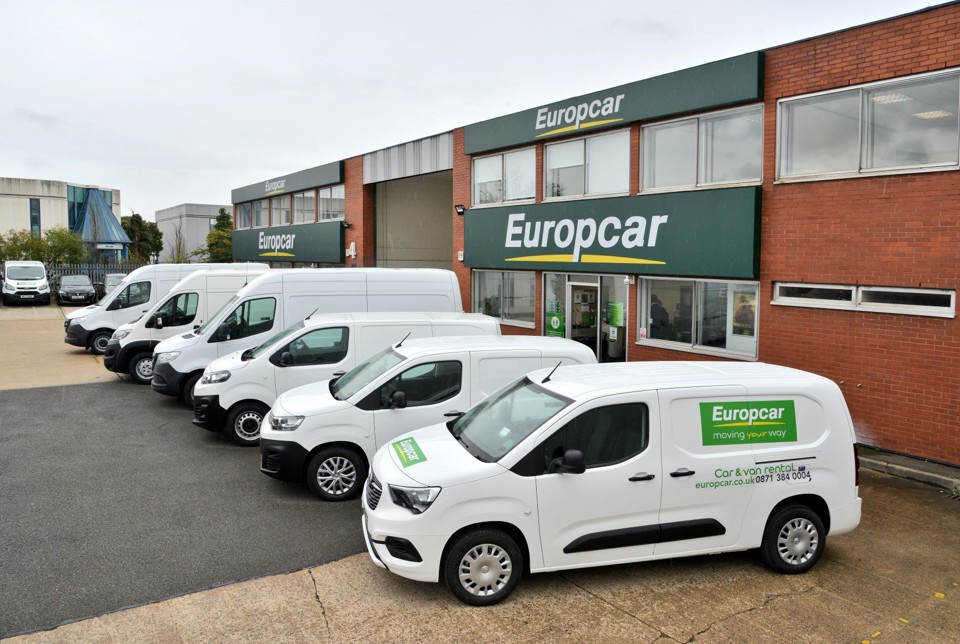Europcar expects to have its UK fleet fully connected by the end of the year, with around 75% of vehicles already fitted with telematics devices.
It puts the UK ahead of schedule to meet the wider group aim of connecting its global fleet by 2023, announced last year.
“That’s going to allow us to manage our fleet more efficiently and effectively,” said Ron Santiago, managing director of Europcar Mobility Group UK. “Being able to know whether a car is ready, before you go out to collect it, is going to save us so much time and energy.”
Europcar signed a deal with Geotab and Telefonica, last year, to connect its global fleet by 2023. The real-time telematics monitoring of cars and vans will provide it with access to engine data, driving behaviour and GPS location, delivering insights into distances travelled, vehicle mileages and fuel levels.
Europcar says this will help it to improve the customer experience through enhanced vehicle delivery and collection, as well as optimising internal processes such as fleet inventory management and vehicle maintenance.
It has also helped trace stolen vehicles, with up to 15 cars recovered, which Santiago believes would have been lost for good in the past.
He told Fleet News: “It’s the most exciting thing I’ve seen in car rental in the past 34 years. “There’s customer benefits, there’s cost benefits, there’s logistics benefits; there’s a full realm of possibilities.”
BUSINESS GROWTH DURING PANDEMIC
Santiago, who has a car rental career spanning 30-plus years, three continents and nine countries, joined the UK business in November 2020, following 12 years as managing director of Europcar Mobility Group Australia and New Zealand.
He replaced Gary Smith who was appointed managing director for Europcar Mobility Group Northern Europe and US Region.
Joining the business in the midst of a global pandemic has had its challenges, but Santiago paid tribute to the way staff have adapted. “The team, before I arrived and since, have done an amazing job of handling all of the uncertainty in the market,” he said.
During the pandemic, its well-established delivery and collection model, which included a recently launched app, has stood it in good stead, while its corporate business has grown beyond pre-pandemic levels, said the company.
“It’s all about leisure and inbound,” explained Santiago. “When are the airports going to get back even close to the levels of 2019 in terms of passenger traffic? Some people say ’23 or ’24. I’m in the 2025 camp.
“But our overall business – our revenues, our fleet sizes – we’ll get back to 2019 levels faster than that, because we’ve grown other sectors of our book of business.”
SEMICONDUCTOR SHORTAGE
The global shortage in semiconductors is becoming a “serious issue” for the vehicle rental industry, with new cars and vans in short supply, according to Santiago.
“We’re seeing cancellations of orders from many manufacturers,” said Santiago. “That’s difficult, because at the same time we’re trying to sell vehicles to maximise the residual values in the market.
“We’re having to sell less than what we would have liked, because we’re not getting the new supply.”
He says that the business has managed that lack of new vehicle availability by extending some existing contracts but expects supply to the industry to remain constrained into next year.
In the UK, Europcar operates more than 30,000 cars and 10,000 vans. Its car fleet was 25% higher in 2019, while its van fleet has grown over the past two years. Cars will be replaced anywhere between four-to-six months to 36 months.
However, Santiago says the replacement cycle has increased due to longer lead times as a result of the semiconductor shortage.
The global shortage in semiconductors is becoming a “serious issue” for the vehicle rental industry, with new cars and vans in short supply.
In terms of next year, Santiago says he is “reasonably optimistic”, but he’s not expecting it to be a “smooth year”.
“We’re going to have to be ready for lots of surprises,” but he said: “I think we’re in very good shape to meet any challenges we could face next year.”























Login to comment
Comments
No comments have been made yet.